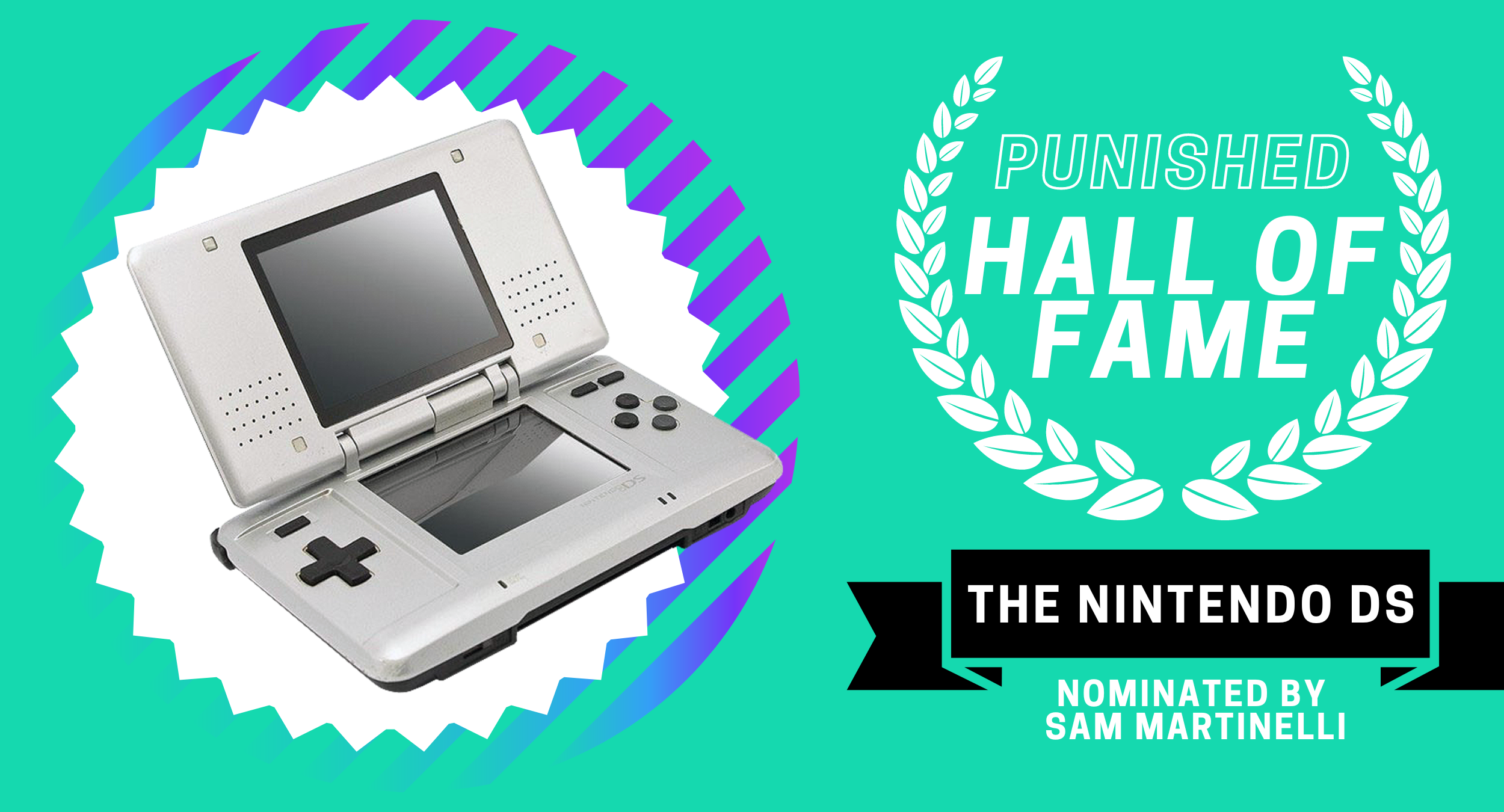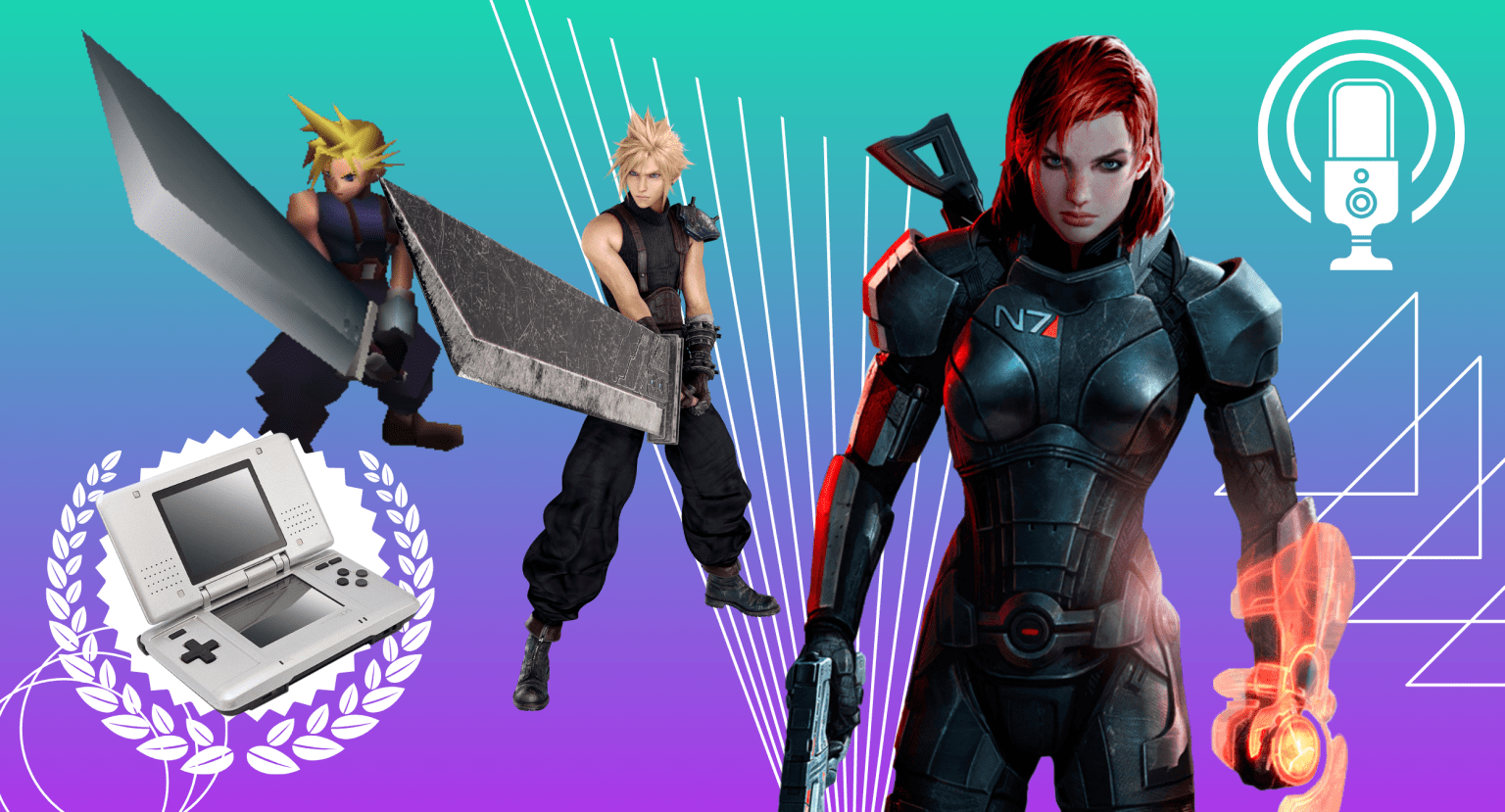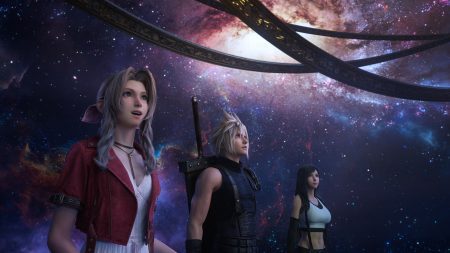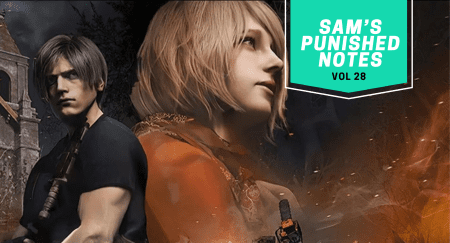Welcome to The Punished Podcast! In episode one, the Punished Backlog editorial team (Sam Martinelli, David Silbert, Amanda Tien) tackles a topic that is top of mind for everyone in gaming this year: remakes and remasters. We share our favorite examples of both, and discuss what it means that we keep getting so many of them. The crew also adds a new inductee to the Punished Hall of Fame… the Nintendo DS!
The Punished Podcast Episode 1

Some comments from the podcast (edited for clarity):
What’s the Difference Between a Remake and Remaster?

David: I would say a remaster is a developer or studio updating [a game] visually and, to an extent, mechanically to make it play well and make it accessible to a modern audience but maintaining the same look and feel. A good example of this, in my opinion, is Metroid Prime Remastered. I know Retro Studios updated the controls to utilize a dual analog setup, so the game is less clunky than we remember from the GameCube version. But it still ultimately looks and feels the same as the original game.
With a remake, you’re definitely creating new assets, building everything from the ground up, and re-imagining the visuals and mechanics. A good example of that, for me, is The Legend of Zelda: Wind Waker HD. Some people look at that as a remaster, but I look at it as a remake because I think the look and feel are quite different from the original. I think something like the Dead Space remake also fits the bill, though it toes the line definitionally, since the gameplay is mostly the same.
On the Potential Risks of Remakes…
Sam: It does feel like every medium recycles things constantly. I think about how King Kong has been made several times, somehow we can’t get away from King Kong! Like everyone in Hollywood has figured it out, that all audiences want to see over and over again is a large ape, just with different visual effects.
I was thinking about this with Mass Effect, which is such an interesting example to me. I played the entire Legendary Edition last year for the first time, and at any point before the Legendary Edition released, I could have played all three of the original versions of those games at any given time, but I didn’t: I waited for the remaster. In a sense, I got got. EA basically just said, “Hey, what if we gave you access to something again? What if we gave you a reason to pay money for this again?” And that’s sometimes a risk that comes with the desire for more remakes and remasters. Sometimes I think we just want to buy something again.

Why the Nintendo DS Is a Hall of Famer
Sam: Today, I’m inducting the Nintendo DS! It’s weird… the Nintendo DS is not my favorite Nintendo platform, but I think it’s the best example of Nintendo striking a balance between simple and complex games, between casual and hardcore titles, between gimmicky and classic controls. You could do anything with the DS. It had this promise to it that it actually achieved.
The Nintendo DS was so creative. And every single person who has DS–and there are many people who have/had a Nintendo DS, as we’ll get into–has a different favorite. It’s amazing that we all have such different favorites. David, for example, has sung Hotel Dusk: Room 215′s praises for years.
David: For me, the DS strikes all the boxes. Lifetime console sales: the DS is second only to the Playstation 2, and it’s trailing by a million units. Wouldn’t surprise me if it was even closer than that. But chances are, if someone’s played a video game before (besides mobile games), it was on a PS2 or a Nintendo DS. That’s the greatest likelihood.
The DS was an amazing handheld device. There was a quality and quantity of experiences on the platform. Hotel Dusk is such a phenomenal game that really used the DS in a novel way; you turned it sideways to hold it like a book. On the left side, you navigated through this dilapidated model, and on the right, you’d advance the dialogue and look at clues.
Amanda: I loved the touch screen and the microphone! There was one franchise that made me think of both: Nintendogs. To date, that series has sold a combined total of 2.69 million copies worldwide, making it the second bestselling franchise on the console.
One of the reasons that’s interesting is that Nintendo reported that most of the people who bought Nintendogs were female and that 44% of the audience for the Nintendo DS was female. I wanted to bring this up because the DS as a platform welcomed in new audiences of gamers, and I wanted to recognize that it’s an inclusive thing that these games were exciting to other groups of people.
Listen to our episode for all our thoughts on the impact of the DS!
Timestamps
- 0:00 – Intro
- 9:14 – Remakes vs. Remasters
- 41:58 – Nintendo DS “Punished Hall of Fame” Induction
- 56:33 – Outro
Song Credits
- “Main Theme of FFVII – Sector 7 Undercity” (Nobuo Uematsu & Shotaro Shima) from Final Fantasy VII Remake
- “Item Acquisition Fanfare” (Hirokazu Tanaka) from Metroid Prime
- “Violet Sky” (Satoshi Okubo & Yuhki Mori) from Hotel Dusk: Room 215
References
- Joe Jordan, “How DS created a new generation of girl gamers,” Oct 2006 at Pocket Gamer



















